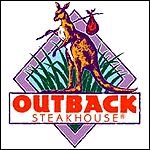This particular tale of woe involves calling your core demographic thieves and then demanding money from them. Sort of sounds like RIAA, doesn't it?
I'm going to summarize SCO's (or rather Darl's) Big Idea here. I'm NOT going to get into proving claims right or wrong, or the specifics of code, or anything technical at all. This is a business strategy post, not a technical one. But, for more information about the nuts and bolts of SCO's gambit, you can check out Groklaw, and their extensive coverage of it. I would start here.
Once upon a time there was a company called Caldera. Caldera was one of the rights-holders on UNIX source code, along with Novell and The Open Group.
 Caldera had a CEO (and founder) with a funny name, Ransom Love. In 2002, Caldera got a new CEO, again with a funny name. This was Darl McBride. Darl changed the company's name to SCO Group (stands for Santa Cruz Operation, for where the company was founded).
Caldera had a CEO (and founder) with a funny name, Ransom Love. In 2002, Caldera got a new CEO, again with a funny name. This was Darl McBride. Darl changed the company's name to SCO Group (stands for Santa Cruz Operation, for where the company was founded).
Darl had a big idea, which I was going to refer to as “Darl’s Big Idea That Will Either Make Oodles Of Money Or Kill SCO,” but the acronym DBITWEMOOMOKSCO is just too unwieldy.
So, Darl's Plan goes like this: "We’ve got UNIX, and our own flavor of Linux, but instead of buying our Linux or Unix OSes, people are using free distros (Linux distributions). How can we get people to start paying us for Linux instead of getting and using it for free? What if," Darl continues, "we claimed that the guys who wrote the core of the Linux OS stole some of our code? Then we could insist that every copy of Linux in use in the world has our intellectual property in it! And then we can demand money from everyone in the world who uses Linux!"
And so The Plan was born. SCO’s first task was to find someone to sue with really deep pockets so that a win in court would bring in a lot of cash and tell the world that SCO means business.
- On March 6, 2003, SCO filed a lawsuit against IBM for $1 Billion.
- On January 20, 2004, SCO filed a lawsuit against Novell for Novell to surrender all claims on UNIX.
- On March 3, 2004, SCO filed a lawsuit against AutoZone for breach of contract with unknown punitive damages.
- On March 3, 2004 (yes, the same date), SCO filed a lawsuit against Daimler Chrysler for breach of contract with unknown punitive damages.
These suits have uniformly not gone well for SCO, and the reason is very simple. SCO’s claims were complete fabrications, and the judges involved with these cases each has an entire cerebral cortex at his disposal.
Now SCO is a curse and a joke among techies worldwide. The SCO brand, once relatively unknown, is permanently damaged among those in the very industry SCO claims to serve. Now that’s a tough crowd.
And it’s because someone got a brilliant idea that should never have left the boardroom. And I mean this: There are great ideas, even terrific ones, which must die on your desk if you want to stay in business.
And on top of that last thought, make-believe is a dangerous game in business. Its consequences can be catastrophic, as seen above, but they can also be miraculous. As is the case with Outback Steakhouse.
 You fall into one of two categories. You’ve either eaten at Outback or you haven’t. And if you haven’t, you probably think that going to Outback for a meal will be an Australian experience. This Australian experience has been brilliantly marketed, using tools like radio ads with actors sporting an Aussie accent, logos with kangaroos, and…well, that’s about it.
You fall into one of two categories. You’ve either eaten at Outback or you haven’t. And if you haven’t, you probably think that going to Outback for a meal will be an Australian experience. This Australian experience has been brilliantly marketed, using tools like radio ads with actors sporting an Aussie accent, logos with kangaroos, and…well, that’s about it.
So that’s all it takes. An accent and a kangaroo, and you’re convinced that this place is Australian. That’s what I thought the first time I went to Outback. I sat at the table, and looked at the walls, decorated with boomerangs and pictures of Paul Hogan. And the menu was littered with Australian place names and “Throw that chook on the barbie 'cause it’s good tucker, mate, and watch your step about the wallaby.”
at the walls, decorated with boomerangs and pictures of Paul Hogan. And the menu was littered with Australian place names and “Throw that chook on the barbie 'cause it’s good tucker, mate, and watch your step about the wallaby.”
So, I’d seen it. No reason to go back, because that was Outback’s version of
My meal arrived, and it was delicious. And now when I think of Outback, I don’t think of
The Australian-ness of Outback is all a fantasy. It’s not real. It’s not meant to last. Outback’s management understands that it won’t. You’ll only go once for the ambiance, and if you go back at all, it’s because of great service and great food. But without
If you deceive your customers, they'll do anything in their power to stop giving you money. But if you give them the right fantasy, and then chase that with something real that's even better than the fantasy (like excellent food, service, dependability, etc...), they'll look for opportunities to let you serve them.
2 comments:
I didn't know about Ransom Love until today when I was researching for this post. I nearly fell out of my chair.
How can you not take a shot at someone who clearly belongs in a romance novel?
Have that someone be completely irrelevent to your story, that's how. Oh well. Maybe next time, Ransom.
"Watch your step about the wallaby," Tee hee...
Post a Comment